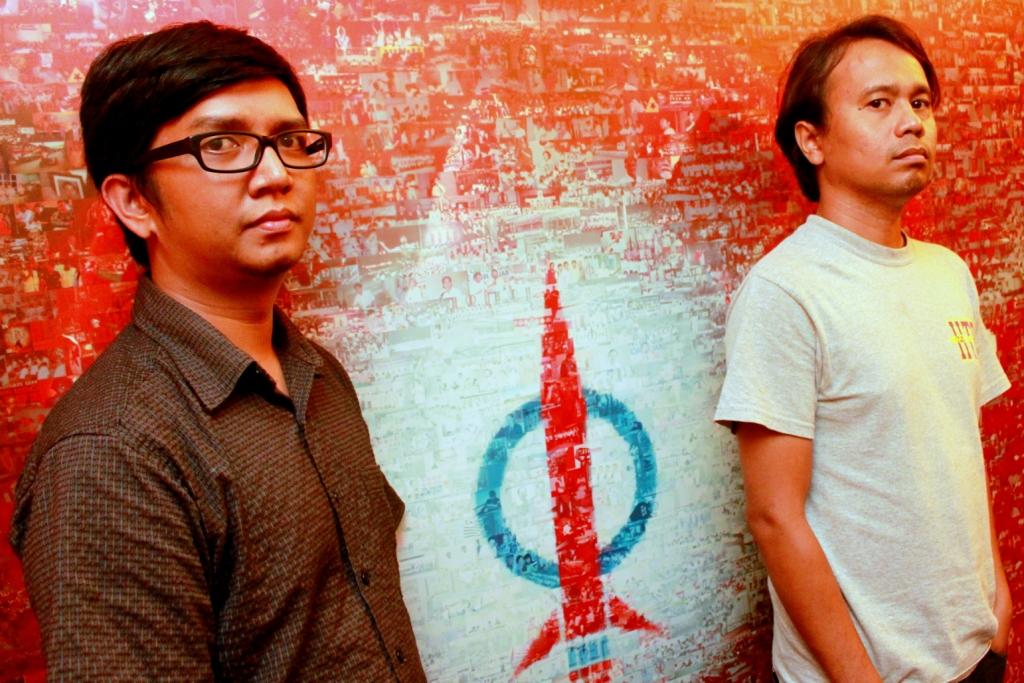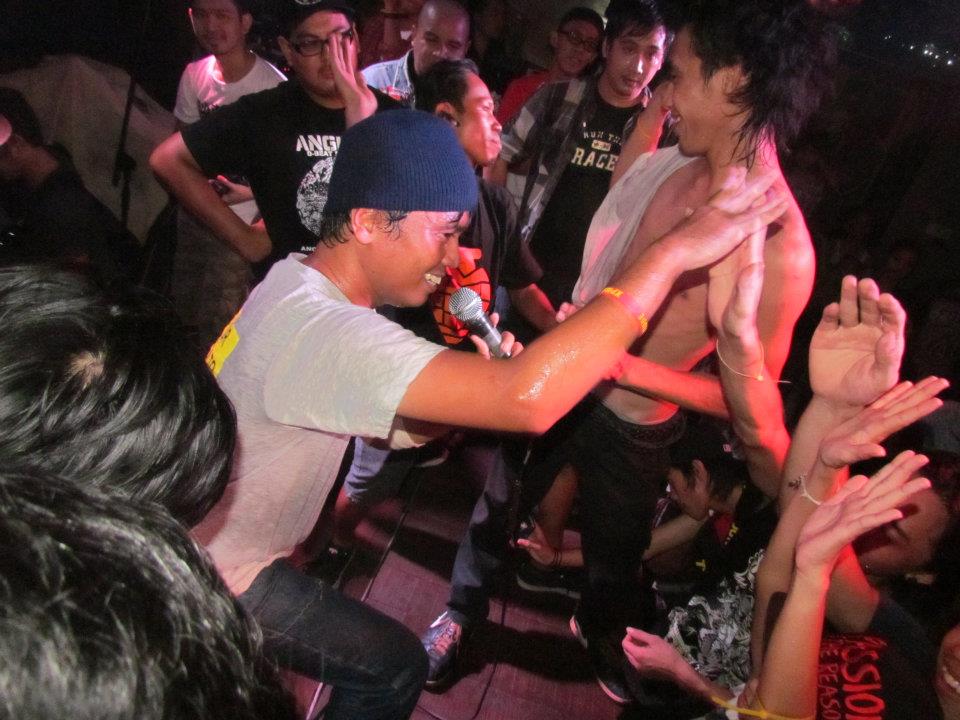No , I have never been a fan of punk rock. When I was in school, we were prohibited from being in contact with any music playing apparatus. The only music allowed came from the PA system, controlled from the warden’s office, by devotees of nasyid within the structure of the school prefects. So, no; I have no idea what punk rock is. What more ‘straight edge’ and ‘hardcore’ music.
The only other alternative music I had the chance to listen to came from a smuggled walkman, playing Master of Puppets over and over again, from under the pillow, after lights out at 11. So again no, my knowledge of music is very much limited. To Metallica and nasyid.
Which is why Second Combat was like a breath of fresh air, although much research was needed in order for me to understand what they were talking about during the interview.
Second Combat is probably one of the biggest local straight edge acts that actually have a following in Europe. But that is not important. What’s more important to you is the question – what in the world is straight edge?
Straight edge emerged as a reactionary sub culture in hard core punk. As punk was being painted with images of drug abuse, alcoholism and other questionable methods of self-expression, straight edge followers refrained from booze, cigarettes or any other questionable herbs that promote light-headedness. Some even go the extra mile by being vegan and not drinking coffee.
The two members of the four-member band who spoke to me were serious about what they preach. Both Ein (vocals) and Arwith (bass) have been staunch vegetarians for the past six years. Both, in their early 30s, are non-smokers. So what happens if someone breaks the rules, I asked. “They just fade away.” Ahh.. okay.
A quick search on YouTube before the interview left me curious as to what in the world they were singing about. Hardcore music is loud and fast. The message, if any, is sure to be lost along the way. I wonder whether their fans actually know what the band was playing, the words to the songs, and the points they were putting across.
Second Combat uses the fast paced hard music as a symbolism reflecting their anger. When asked what was the root of their current anger, it was clear that the band was highly political and wanted their voices heard.
“We sing about the environment, human trafficking, child labour, education system, indigenous rights, globalisation, capitalism. But the main issue is mostly drugs.” A concept alien to Justin Bieber fans, im sure.
The band’s shift from punk rock to straight edge developed from the period between 1996 and 2000. They saw how drugs and alcohol disintegrated their families and friends. Ein relates how he had nobody to look up to, while his teenage curiosity won over him. He now tours schools, organizing talks to get the kids to understand why they must never come close to substance abuse.
 In their point of view, corruption is another major problem. “It goes all the way to the top. It must be changed” they say. According to them, corruption is the main gateway for drugs to reach the kids. The music they are presenting, though not so radio friendly, is getting a huge following from around the world; as far as the straight edge scene is concerned.
In their point of view, corruption is another major problem. “It goes all the way to the top. It must be changed” they say. According to them, corruption is the main gateway for drugs to reach the kids. The music they are presenting, though not so radio friendly, is getting a huge following from around the world; as far as the straight edge scene is concerned.
Having performed in gigs across Europe, they have seen how the youth on the other side of the globe are more exposed to a different pattern of thought.
Although I trust that my mother would classify Second Combat as a devil-worshipping band due to the level of noise, it is rather clear that this punk band deserves to be listened to. Or at least have their lyrics understood, before head-banging to the songs.
They talk about heavy political issues, including free education for the poor. “If Turkey can provide free education with limited resources, why can’t we?” they ask. “The current government is purely not performing. They are merely robbing us all.”
They were not afraid to say so on record. They say corruption is eating society like a virus. Artists like themselves are going all out to change the situation for the better. “Our art is for the people. Not for self-satisfaction.” – The Rocket




